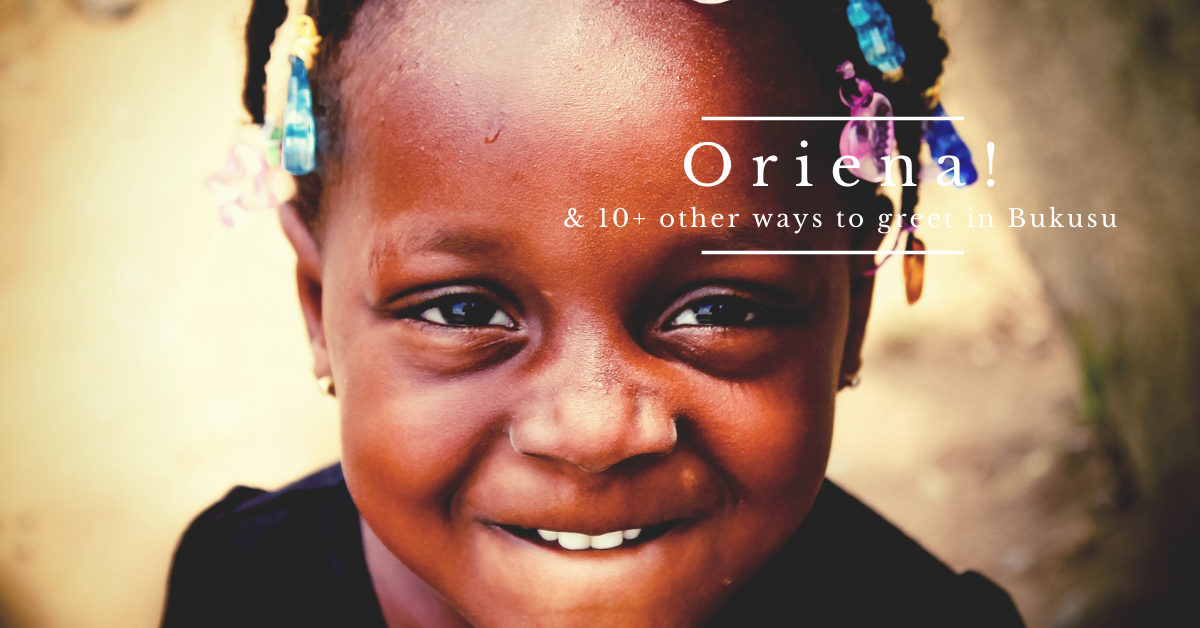Today, I want us to learn how to greet in Bukusu. Could be that you are gearing up for enganana. Maybe you have just landed a top job in Bukusu land that requires some proficiency with the local language and culture. Could be that you are looking to invest in Bungoma or elsewhere in Bukusu land and need an icebreaker in negotiations. The following 10 uniquely Bukusu greeting should go a long way.
10 Ways to say “Hello” in Bukusu
Go To: Mulembe | Oriena | Nono | Bolakho | Kamakhuwa | Mungo omwo | Mungo murie? | Nakhubone | Wanyala | Wateka
Mulembe
Mulembe is the quintessential Luhya greeting. As we explored in this article on the True meaning of mulembe, mulembe is a greeting that communicates our ethos, spirit and essence as a people. During campaigns, politicians have perfected the art of appealing to masses by exploiting the deep roots of this greeting on our psyche as people. As earlier mentioned, the richness of our language makes the humble ‘mulembe’ the perfect way for a politician to greet in Bukusu. In such a way that they breaks the ice and cultivate warmth between them and the crowd.
Politician: Bapapa, bamayi ne bayaya mulembe! (My fathers, mothers and my siblings greetings!)
Crowd: Mulembe!
Politician: Swa! Swa! (Swa, translated, means ‘full like a full cup or basket’.)
Crowd: Swa! Swa!
Politician: Mia! Mia! (Mia, like in Swahili means ‘one hundred’. It’s use when you greet in Bukusu is to communicate that you are multiplying your greetings hundreds times over)
Crowd: Mia! Mia!
Politician: Tee! Tee! (Pronounced as ‘teh’, is an expression that there really is no meaning of.)
Crowd: Tee! Tee!
Politician: Muli moyo? (Are you alive/ are you well?)
Crowd: Yieee! (Yes!)
Mulembe is a standard greeting between two people. However, unlike the Bukusu greeting ‘oriena’, which we discuss next, the greeting mulembe is almost always accompanied with a hearty handshake.
via GIPHY
Example: The call and answer when you greet in Bukusu ‘mulembe’;
Nanjala: Mulembe?
Nekesa: Mulembe mno!
Oriena
This is the standard Bukusu greeting. Translated, it is a simple ‘how are you’? Oriena is the perfect way to greet in Bukusu if for one reason or another, you are unable to shake their hands. However, it works even when you are shaking their hands.
via GIPHY
Example: The call and answer when you greet in Bukusu ‘oriena’;
Nanjala: Oriena, Nekesa?
Nekesa: Ese Omulamu, Nanjala. (I am well, Nanjala.)
Nono
Nono is a Bukusu greeting that means: and now? This is greeting is common among peers.
via GIPHY
Example: The call and answer when you greet in Bukusu ‘nono’;
Nanjala: Nono Nekesa?
Nekesa: Bulayi Nanjala.
Bolakho
This greeting in Bukusu translates to ‘say something’. Works best when speaking over the phone. Imagine your phone ringing and it’s your girl who always has hot gossip. When you pick the phone, you may greet them ‘bolakho’ as away of prompting them to get on with the gossip. Another scenario Like when is expecting information from someone. You may say ‘bolakho’ as way of initiating the conversation.
via GIPHY
Nekesa: Bolakho Nanjala
Nanjala: Ese omulamu lakini nabelekho omulwale. ( I am well, but been under the weather.)
Kamakhuwa
Just like ‘bolakho’, this greeting in Bukusu is used to prompt the other party to let out the cat of bag. The word ‘kamakhuwa’ literally means words in Lubukusu. Therefore, in the Bukusu way of speaking, when someone says kamakhuwa, they are surely asking you to speak your heart out
via GIPHY
Example: The call and answer when you greet in Bukusu ‘kamakhuwa’;
Nanjala: Kamakhuwa Nekesa
Nekesa: Kamalayi. (It’s good)
Mungo omwo
Means: ‘that home’. This is a greeting used by someone who is passing by a homestead.
via GIPHY
Example: The call and answer when you greet in Bukusu ‘mungo omwo’;
Nanjala: Mungo omwo?
Nekesa: Khulimo! (We are present/ fine)
Mungo murie?
Means: “Are people in this home?” This is a greeting by a visitor who may have entered a homestead by hasn’t been received/welcomed yet. The closest Swahili equivalent is: Hodi?
via GIPHY
Example: The call and answer when you greet in Bukusu ‘kamakhuwa’;
Nanjala: Mungo murie?
Nekesa: Khulimo.( We are well or we are present)
Nakhubone
Means, I have seen you. This is a greeting used to acknowledge presence of someone in say a function like a wedding or funeral.
via GIPHY
Example: The call and answer when you greet in Bukusu ‘nakhubone’;
Nekesa: nakhubone Nanjala
Nanjala: nakhubone Nekesa
Wanyala
Wanyala means well done. It is a Bukusu greeting that’s borrowed from the masaba language. It is used when appreciating someone who is working; such as when harvesting maize.
via GIPHY
How to greet and respond when somebody greets you ‘wayala’ in Bukusu.
Nanjala: wanyala Nekesa
Nekesa: yieee Nanjala
Wateka
Can be used interchangeably with the greeting ‘wanyala’.
via GIPHY
Learn Bukusu with us. Free, easy and at your own pace
Bukusu language or Lubukusu is the tongue of Babukusu, the largest of the 18 houses of mulembe. Learn how to speak Bukusu language through our free lessons in Bukusu language; our stories on Bukusu culture that harness the richness of Lubukusu in their narrative; our continuous search for the meaning of different Bukusu proverbs and sayings; and if your Lubukusu is already good enough, sharpen and challenge yourself with our new blog sibukusu that covers everything Bukusu in the purest Lubukusu.
Get started with our mega post: 130+ common Bukusu words and phrases their meaning, translation and pronunciation.
- How to say ‘come and close the gate’ in Bukusu

- Meaning of nyanga ya mabasa in Bukusu

- The owl in Bukusu is Esikhikhi: A lick at curious associations and myths about the owl in Bukusu culture

- How do we say am amazed in Bukusu

- Names of 10 common rodents in Bukusu language
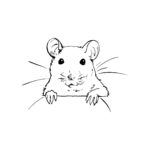
- How to say good morning in Bukusu

- Spice up your Bukusu: Meaning of enje chelechenje
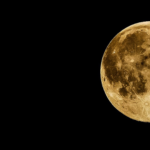
- How to say I miss you in Bukusu language
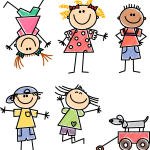
- Common English pronouns in Bukusu language
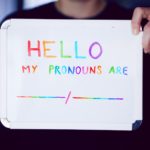
- Learn Bukusu: Blood, sweat, tears and other excretions, fluids and body secretions in Bukusu
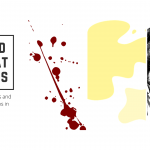
- 100+ Human body parts in Bukusu Language – Lubukusu
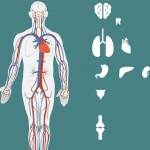
- Numbers in Bukusu: How to count 1 – 10 in Lubukusu – Video and common language rules to consider
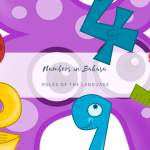
Subscribe to Mulembe Weekly
Get culture, language, stories and discussions in your inbox every Friday 5 PM East Africa Time

